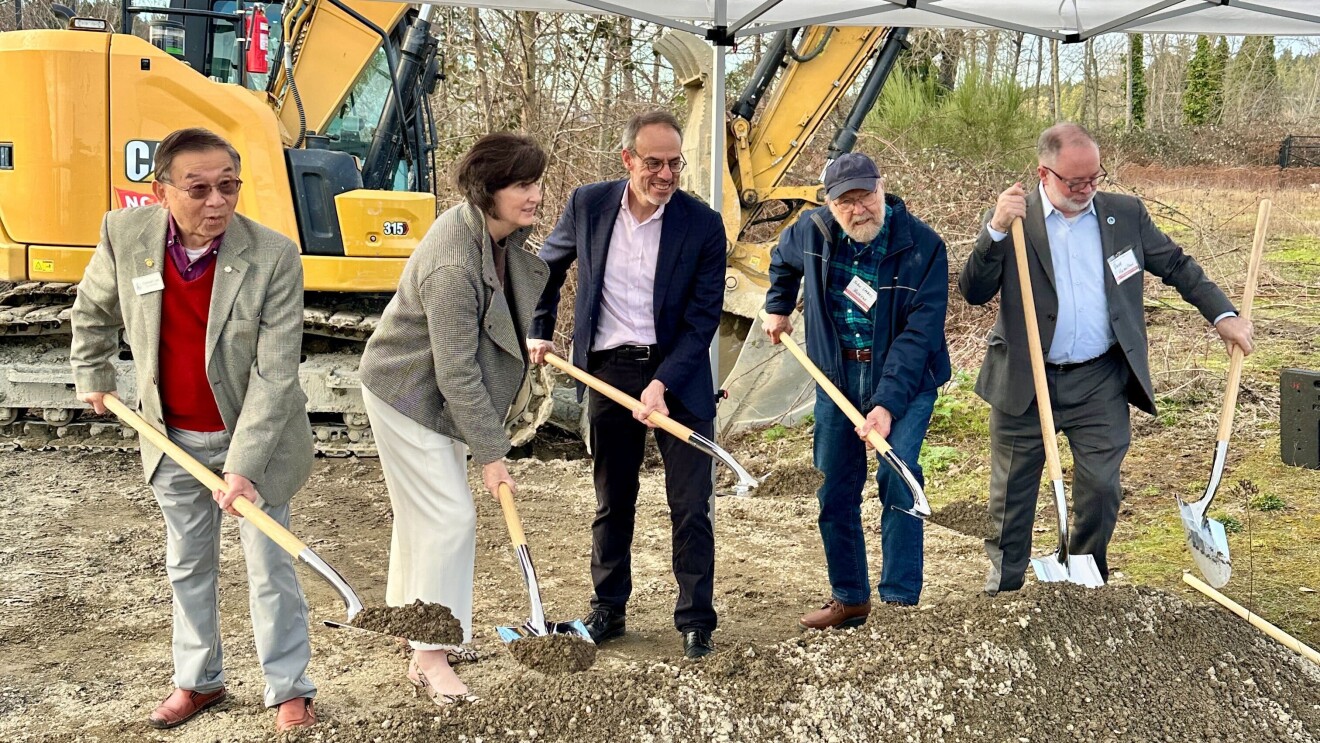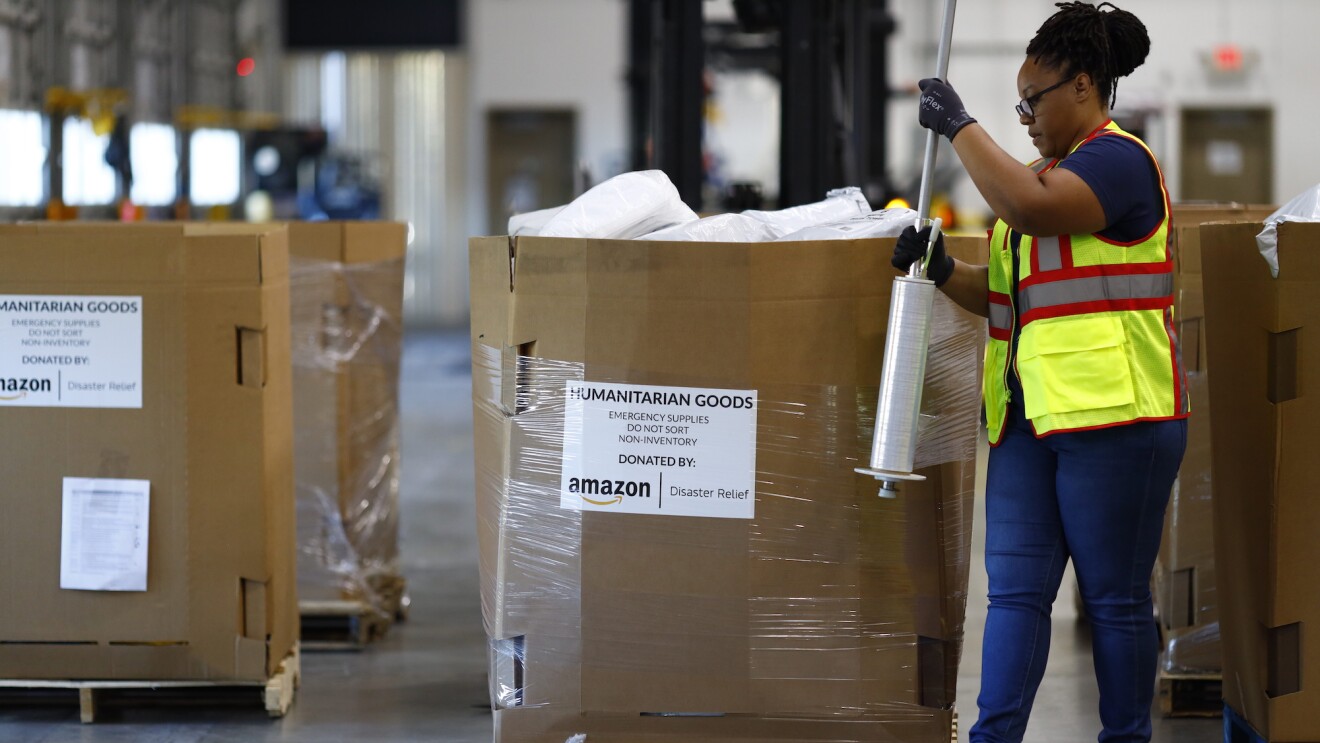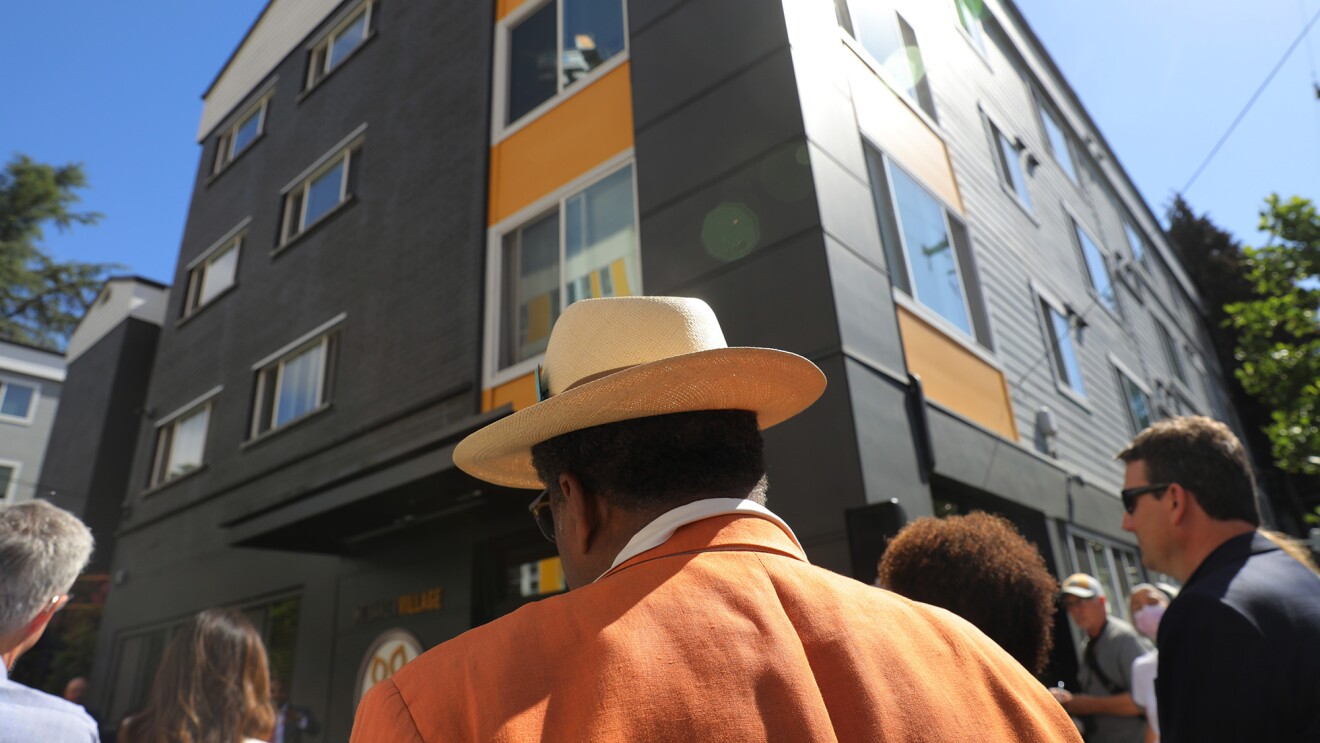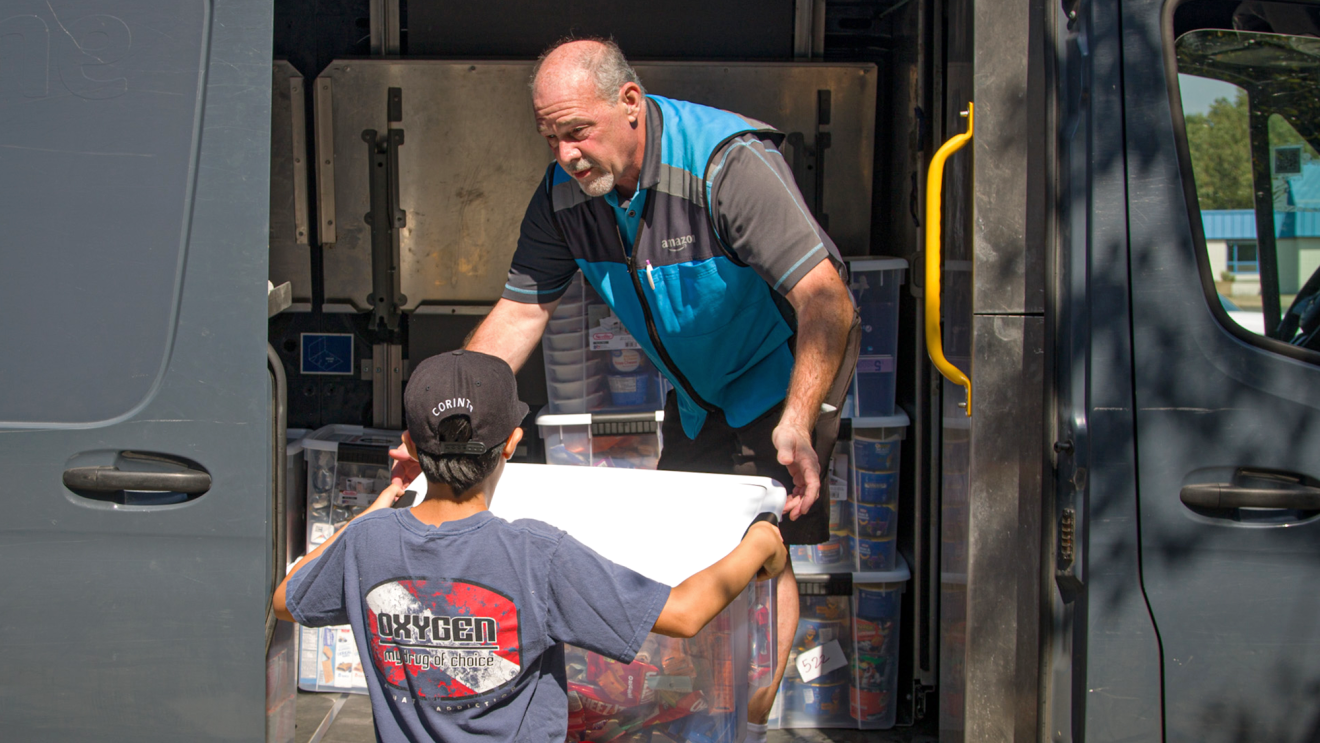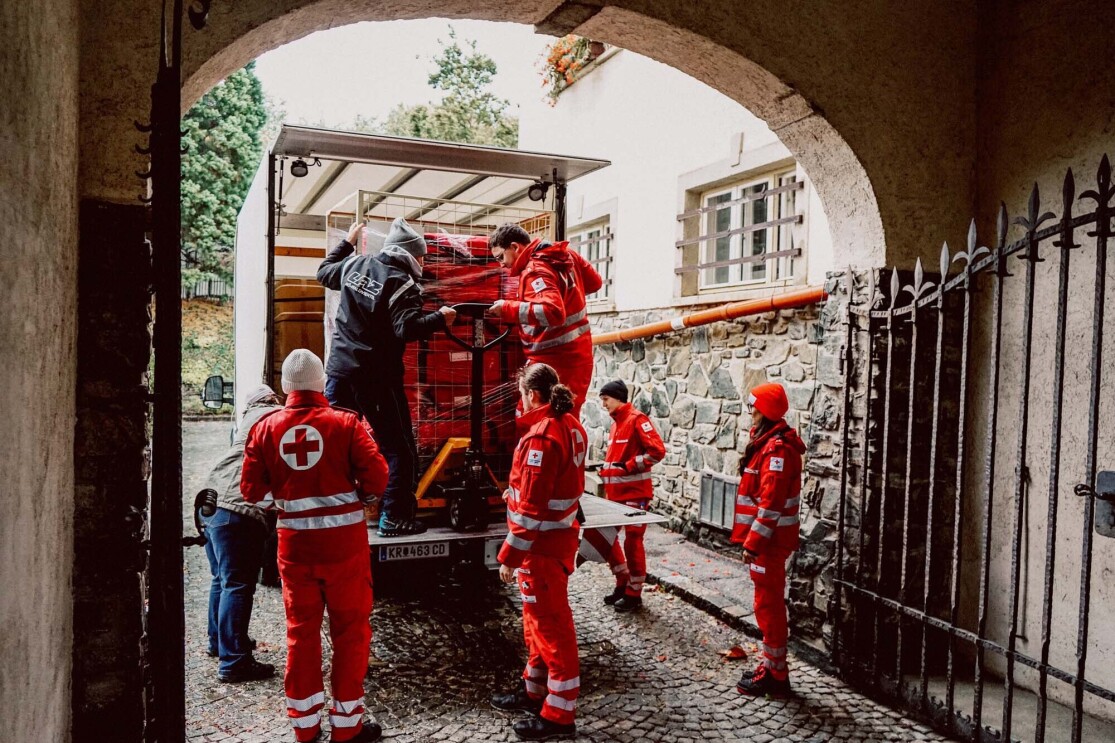When COVID-19 spread across the world in 2020, uncertainty about the novel coronavirus left many questions unanswered. But experts knew one thing: Research would be critical in saving lives. Nearly three years later, life-saving technologies developed from years of research are helping the world return to some sense of normalcy.
“It’s still not over, but the availability of vaccines and better treatments and testing that have been developed by companies worldwide have us in a much better place,” said Dr. Vin Gupta, a national leader in public health based at the University of Washington’s Institute for Health Metrics and Evaluation and pulmonologist in the U.S. Air Force Medical Reserve Corps.
01 / 02
In addition to his clinical work and military service, Dr. Gupta has supported Amazon’s broader health efforts over the last three years. During the pandemic, he joined experts across the company who refocused their work to help guide Amazon’s efforts to support employees and the broader community.
01 / 05
“Amazon was approached with requests for technical, financial, and logistical support from a range of key stakeholders worldwide to bolster pandemic response,” said Dr. Gupta. “In addition to guiding employee safety efforts, part of my job was to help identify public health projects with strong potential that Amazon was optimally suited to support. Our teams supported a number of operational and implementational projects, but we also identified two projects on the clinical research side that we felt were particularly promising to impact society at scale.”
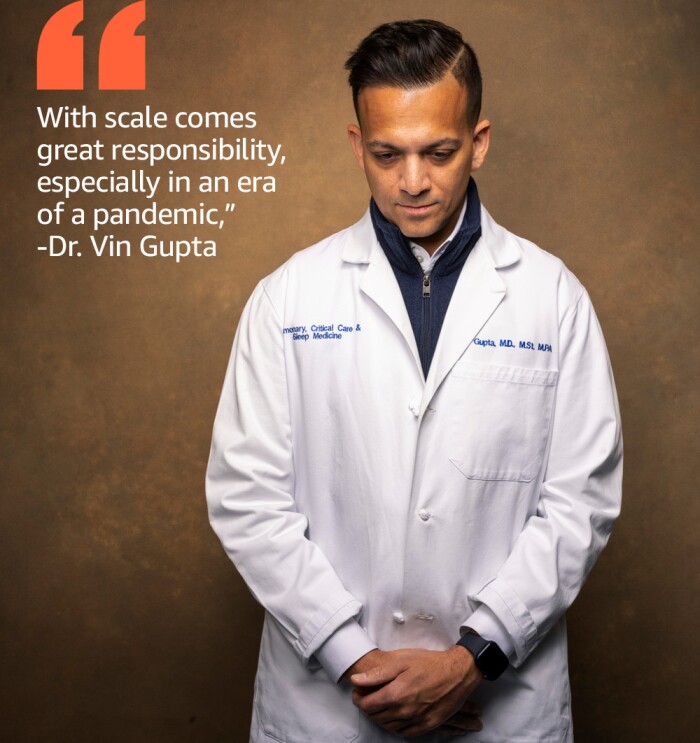 Photo by Lucas Jackson
Photo by Lucas JacksonOn the operational side, the most obvious application of Amazon’s strengths was using its logistical networks to deliver critical supplies, like oxygen and COVID-19 tests. Supporting clinical research was a unique effort for a company like Amazon, which helped fund two studies during the pandemic that focused on researching treatments for COVID-19 patients and potentially better, more accurate testing.
“The world clearly needs a multidisciplinary company like Amazon to fill the many voids that arise during a crisis,” said Dr. Gupta. “We took the next step with these studies because we also have a lot of scientific and clinical expertise within the company that allowed us to help, not only from a funding standpoint, but also in stewarding and guiding the studies from a strategic lens.”
Testing the efficacy of plasma in treating critical cases
The first study Amazon supported aimed to gain a better understanding of the role convalescent plasma could play in treating patients with severe COVID-19 infections. At the time, doctors had no vaccines or therapeutics.
“The medical community was sort of throwing darts at a wall to find effective treatments, and this was a promising start,” Dr. Gupta said. “There had been some research during Ebola that convalescent plasma from patients who’d recovered from the virus could help with recovery when given to somebody who was acutely sick with Ebola. In a way, it was giving them the immunity that somebody else had built up. We wanted to see if this could be applied to COVID-19 as well.”
The study was spearheaded by Columbia University researchers. Dr. Gupta provided advice to those running the trial, diving deep into the study’s design and execution. The committee worked closely with researchers testing the treatment in regions with high infection rates, including New York City and Brazil. The results, which were published in The Journal of Clinical Investigation, showed a promising effect among patients infected with the Delta variant.
“The trial demonstrated that in adults hospitalized with severe COVID-19, use of convalescent plasma was associated with a statistically significant reduction in 28-day mortality versus the control arm,” said Dr. Gupta.
While the use of plasma to treat COVID-19 has been debated as new variants come into play, findings from this research helped guide physicians’ decisions in treating the initial Delta variant. The study also provided a base knowledge as research continues on the treatment’s efficacy with newer variants.
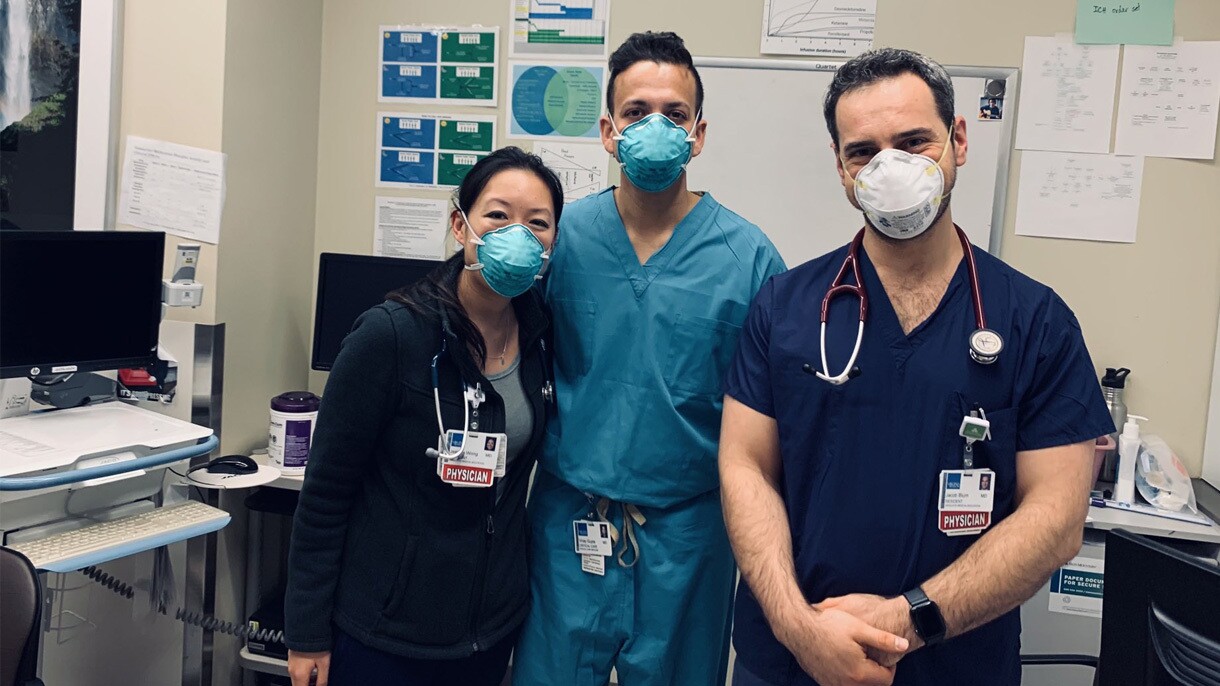 Dr. Gupta working with physicians in a Seattle-based intensive care unit during the COVID-19 pandemic.
Dr. Gupta working with physicians in a Seattle-based intensive care unit during the COVID-19 pandemic.Raising the bar on rapid testing to detect and prevent infections
In parallel with the plasma study, Dr. Gupta provided guidance for a clinical study to develop testing protocols. The study was led by the global health organization PATH (formally known as the Program for Appropriate Technology in Health) and supported by both Amazon and the Rockefeller Foundation, which met biweekly to help design and execute the study.
“We were trying to solve for a unique problem here: How do you get somebody rapidly screened who might not be symptomatic?” Dr. Gupta said. “We ran head-to-head comparisons on the available low-cost, rapid testing technologies in an effort to provide clarity on which one would be best to screen masses of people quickly for a disease like COVID-19 that can easily spread because it’s so contagious.”
The study focused on locales that were hotspots during the pandemic, with researchers working in Brazil during the country’s large wave of infections. Dr. Gupta said the study was key to better understanding the real-world utility of rapid testing for COVID-19 and to help minimize the chance of outbreaks.
“There were some tests that consistently performed above the rest,” he said. “These tests were better able to capture lower levels of virus than others, which is important because that meant they had a better likelihood of detecting infection in someone who was asymptomatic before they could spread the virus to others.”
Dr. Gupta said the study’s findings contributed to “the growing literature” about which rapid tests best detected those early infections.
“This is critical information. While additional work is required, stopping infectious disease outbreaks—now and in the future—requires testing platforms that can detect asymptomatic infection,” he said.
Going forward, knowledge is power
Communities worldwide are learning to live alongside COVID-19 while also preparing for future challenges. Research is ongoing, but hundreds of studies conducted during the pandemic continue to inform important decisions made by researchers, medical professionals, and communities.
“With scale comes great responsibility, especially in an era of a pandemic,” said Dr. Gupta. “Amazon has already contributed in meaningful ways—through clinical research, leveraging the cloud to accelerate novel point-of-care testing solutions, and agile disaster response—that have saved lives and will significantly strengthen future pandemic response. This is a natural mission for our enterprise that I hope we will continue to embrace.”
Trending news and stories











